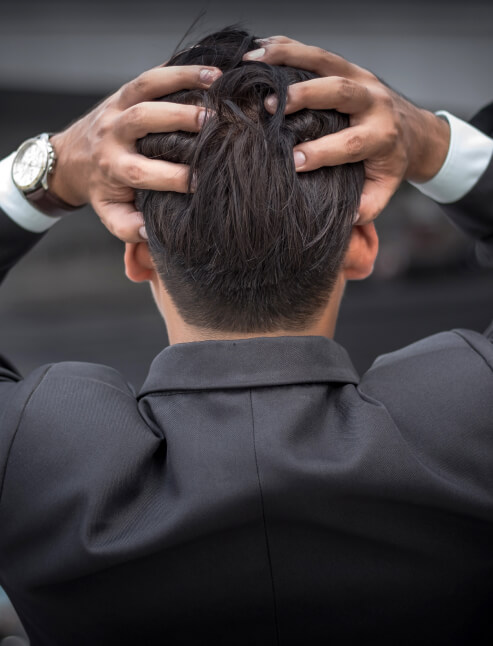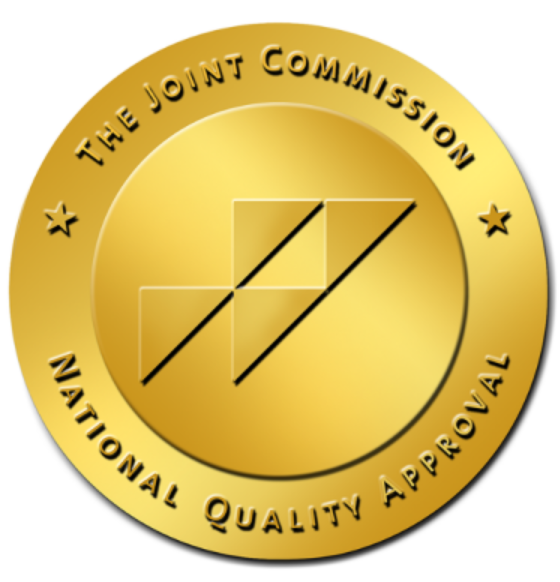Impulse Control Disorders
Treatment Los Angeles
What Are Impulse Control Disoders?
“Impulse control disorders” is an umbrella term that refers to a class of mental health conditions that cause problems with self-control. People with impulse control disorders often struggle to control their thoughts, emotions, and behaviors. While people suffering from impulse control disorders often recognize the irrationality of their own behavior, they are unable to manage it themselves. These destructive mental health disorders not only make people feel helpless, but they can cause destruction when individuals harm others or violate laws or social taboos.
Impulse control disorders are also associated with a variety of other mental health conditions, especially substance use disorder. Because people with impulse control disorders struggle to control their own actions, it is easy for them to quickly develop addictions to drugs and alcohol. It is common for people with mental health conditions to engage in substance abuse as a form of self-medication as well. Unfortunately, drugs and alcohol are likely to exacerbate the symptoms of most impulse control disorders. People suffering from co-occurring substance use disorders and impulse control disorders require care for both conditions in order to make progress in their lives.
Preliminary research shows that males are somewhat more likely to suffer from impulse control disorders. These conditions are likely to first manifest themselves during adolescence, when most people are beginning to struggle with self-control. However, unlike traditionally impulsive teenagers, those with impulse control disorders often experience more severe long term consequences as a result of breaking laws or engaging in violent behavior. It is important to address the symptoms and root causes of an impulse control disorder as early as possible to prevent it from developing down the line.
Unfortunately, impulse control disorders are very often misdiagnosed. As a result, many people with impulse control disorders do not receive the treatment they need. These treatments include a variety of therapeutic modalities, such as cognitive-behavioral therapy. For some individuals, medications can be used to reduce the volatility of emotions and impulses.
Common Mental Health Disorders
With the internet now a ubiquitous part of everyday life, and many people spending unhealthy amounts of time on their smartphones, it can be difficult to tell when someone has an internet browsing addiction. People suffering from internet addiction, however, are distinct in that they use the internet as their primary means of escapism and pleasure. One of the primary effects of internet addiction is the way it interferes with a person’s ability to function effectively in the world. Internet addiction symptoms include withdrawal from social life, a loss of interest in offline activities, a sense of losing control of ones own behavior, and continued internet abuse despite consequences.


Intermittent Explosive Disorder (IED) affects approximately 16 million Americans. Sometimes known colloquially as explosive anger disorder, the condition caused people to react to triggers with disproportionate rage. These outbursts, which rarely last longer than an hour, are often experienced as a sense of release, though they may be followed by intense feelings of remorse. The DSM-5 categorizes IED as an impulse control disorder, since outbursts are not premeditated and serve no functional purpose. With a lack of medications designed to directly treat IED, friends and family are often left wondering how to deal with intermittent explosive disorder. While some SSRIs and mood stabilizers have proven to help with some intermittent explosive disorder symptoms, intermittent explosive disorder treatment usually involves counseling. Cognitive-behavioral therapy (CBT) is an effective therapeutic method, and research has shown that explosive rage disorder symptoms subside in most patients after only 12 weeks of CBT treatment.
Causes of Impulse Control Disorders
Impulse control disorders can rarely be attributed to one cause alone. These conditions are a result of both environmental and biological factors. Chemical differences at the neurological level of the brain can make certain individuals more vulnerable to suffering from an impulse control disorder. Certain population groups are also more susceptible to developing an impulse control disorder, such as males and adolescents. This is partly do to a wide variety of social pressures experienced by these groups. Adolescents, whose brains are not yet fully developed, do not have fully functioning executive function. As a result, they often struggle to make thoughtful decisions and are prone to impulsive behavior. As a result, it is easy for young adults to initiate patterns of addictive behavior from which they later struggle to extricate themselves.

Environmental factors also play a significant role in the development of impulse control disorders. Exposure to traumatic experiences, especially early on in life when the brain is still developing, can increase the likelihood of a person having a problem. Childhood abuse and neglect can actually cause irreversible brain damage in areas of the brain that control motivation and decision-making. Individuals who suffer from these abusive experiences often lack feelings of safety and security, turning to the short-term pleasures of addictive behavior to compensate. Children raised in homes where unpredictable violence and emotional abuse is the norm tend to internalize many of these coping mechanisms and repeat these behaviors as adults. For this reason, impulse control disorders should be understood as a socially mediated cycle of behavior that perpetuates itself from generation to generation.
Comorbidity with Substance Use Disorders
Individuals who suffer from addiction to drugs and alcohol, known in psychiatric circles as substance use disorder, are also far more likely to develop impulse control disorders. People who suffer from two or more of these conditions are known as “dual diagnosis” or “comorbid.” These terms imply that the conditions mutually affect each other. The overlap is significant. In fact, up to 48% of people with intermittent explosive disorder also suffer from substance use disorders. Of people with gambling addictions, one study showed that 7.3% of them were clinically addicted to alcohol. Given that both alcohol and recreational drugs both harm an individual’s ability to make decisions, it makes sense that people engaging in regular substance abuse tend to engage in other impulsive and harmful behaviors. Many people with impulse control disorders also turn to drugs and alcohol as a way of managing the symptoms of their mental illness, using alcohol, for instance, as a way of blunting feelings of distress after an explosive outburst or a major gambling loss. While self-medication can provide a feeling of relief, the help is only temporary. Without proper treatment, self-medication only exacerbates the symptoms of impulse control disorders, and impulse control disorders lead to further substance abuse — a vicious cycle that can destroy lives.
Treating Dual Diagnosis Conditions

For anyone suffering from a mental health disorder, the most important first step is admitting the problem and seeking help. Impulse control disorders and addictions are difficult to treat in solitude. Since the problem usually resides in an individual’s patterns of thinking, solitary reflection and personal commitments rarely suffice. It is also often difficult for individuals with impulse control disorders to admit to having a problem in the first place, in part due to the stigma surrounding loss of control. For many, it takes an intervention from family members or close friends before the issue becomes pressing enough to warrant action. A variety of treatment programs exist for individuals suffering from impulse control disorders. These programs range from residential mental health facilities, where psychiatric professionals are on call 24/7 to provide support, to intensive outpatient programs, where individuals work several hours per day on an individualized treatment plan. For some people, formal treatment programs are not necessary, and meeting with a licensed psychotherapist can be sufficient. Therapeutic modalities like cognitive-behavioral therapy, which address the relationship between cognitive and behavioral patterns, can help people change ingrained and automatic impulses over time.
Individuals who suffer from one of the many impulse control disorders in combination with a physical dependence on drugs or alcohol face an additional array of complications when it comes to treatment. It is crucial for this population to treat both conditions simultaneously. If a substance use disorder is left untreated, for instance, unsafe use of drugs and alcohol is likely to trigger a relapse for the impulse control disorder. Addiction treatment is likely to be similarly fruitless if other mental health conditions are left untreated, since much of the time substance abuse is a self-soothing or self-medication tool used by individuals suffering from acute mental illness. Treatment programs that are equipped to simultaneously handle both conditions are the best course of action. Many inpatient treatment centers employ a range of psychiatric professionals and addiction counselors that can meet the complex needs of dual diagnosis patients. Partial hospitalization programs (PHPs), which take place in clinics or hospital settings, are also valuable resource centers.
Impulse control disorders and substance use disorders require long term treatment. While there is no permanent cure for either condition, the nature of treatment is likely to change over time. After gaining valuable skills and learning coping strategies in a formal treatment setting, most people return to relatively normal lives but continue to make use of the services of counselors, support groups, and 12-step programs. Many find that these resources significantly enrich their lives in many ways not directly related to their mental illnesses, providing social support groups and a better self-understanding. While treatment for impulse control disorders and substance use disorder is indeed a long journey, it is possible to find invaluable companionship and limitless freedom from step one.





